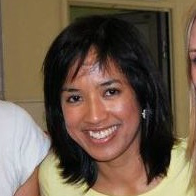Today, religion stands accused of encouraging intolerance, of promoting terrorism, radicalising people and inflaming conflict.
 A casual glance at conflicts worldwide might cause many to think that religion is at the root of the strife.
A casual glance at conflicts worldwide might cause many to think that religion is at the root of the strife.
While the fault lies in religious extremists who see radical measures as necessary means to fulfil religious ends and contributing towards the escalation of conflict, nevertheless, it has tainted all religions, giving them a problematic name.
In Latin America, however, religion has always had another face, another narrative. In many conflicts, religion has played a role of positive peace-building, reconciliation and in many situations, a powerful agent of social change.
Recently, the Pope offered to mediate the peace talks between the Revolutionary Armed Forces of Colombia (FARC) and the Colombian government.
I admit, I myself tend to think of religion as a (relatively) conservative school of thought which has perhaps the most impact only on its own followers. However, the more I roam and travel around, the more I have been blessed to see the beautiful and human side of religion.
In Thailand, monks would hitchhike on the side of the road with us, and many temples gladly and hospitably welcomed Joanna (my then travel partner) and I whenever the need arose and offered us food.
In other parts of the world, various encounters made me love religion for what it simply is: a source of strength for most people less preoccupied with metaphysics and death and more towards nature, kindness, abundance and the satisfaction of the human spiritual needs.
When my journey took me towards South America, I thought that was the end of my religious encounters. How wrong I was.
The narrative of religion in this part of the world, while often overlooked, is strong, fundamental, and it lives straight within the struggles of the common people.
The narrative is that of liberation. In Latin America, during the 1960s and 1980s, a school of thought was borne under the name of “liberation theology”, which posits that religious doctrines should be assessed and interpreted out of the experiences of the poor.
Under such perspective, the church mobilised itself to side with the poor and oppressed against the rich and powerful, and became a vehicle to promote social justice and transformation.
According to the idea of liberation theology, a “poor” person is never a result of fate. Rather, the existence of a “poor” person marks the symptoms of the world we live in and are, therefore, responsible for.
Hence, in viewing a “poor” person, the role of religion is not to call for generous deeds which will alleviate his suffering, but rather, a role that demands the construction of a different social system.
Hence, the influence of the church should not be limited to academic pursuits of scholars nor just to the confines of the church, but rather, the church must be utilised to challenge existing social, economic and political system that is based on oppression and exploitation of the poor.
In particular, liberation theology also posits that repression can occur under secular and religious rule, and that religion should be cautious against being used as a cover for repressive practices. Hence, liberation theology as an ideology fights not just against a corrupt and oppressive secular rule, but also against a religious but authoritarian government.
It was strange at first, for me, to realise that in South America, a continent thought to be the worldliest of them all, religion has a beautiful name, its name closely synonymous to the term liberation. However, upon closer inspection, it is unsurprising.
In South America, realism and spiritualism are not exclusive, and that religion can never be separated from the rest of society.
Religion is never meant to be an enslaving tendency that “deadens” the conscience of the people in favour of the spiritual world, but rather, it livens up the conscience and provides moral courage to the oppressed to stand up against their oppressors.
No wonder then that the current Pope, hailing from South America, is so progressive. – September 15, 2015.
* This is the personal opinion of the writer or publication and does not necessarily represent the views of The Malaysian Insider.


Comments
Please refrain from nicknames or comments of a racist, sexist, personal, vulgar or derogatory nature, or you may risk being blocked from commenting in our website. We encourage commenters to use their real names as their username. As comments are moderated, they may not appear immediately or even on the same day you posted them. We also reserve the right to delete off-topic comments